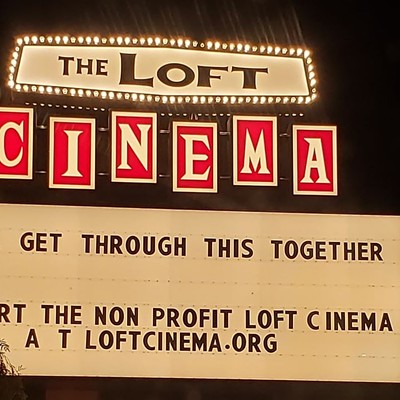Wednesday, February 18, 2015
About That "Shadow Faction of Charter School Operators" Diane Douglas Talked About
Among the many inflammatory statements in the press release Ed Supe Diane Douglas shot off after the Board of Education employees she tried to fire were reinstated by Ducey, was this line:
"Clearly [Ducey] has established a shadow faction of charter school operators . . ."Sounds very conspiratorial, which fits with Douglas' Tea Party mindset. But here's the question. To paraphrase Hillary Clinton's assertion during the 90s: Is there a Vast Charter School Conspiracy in Arizona and around the country? Well, if hundreds of millions of private dollars spent creating astroturf groups pushing charter schools, more millions spent on election campaigns to buy candidates' loyalty and still more millions spent directly on financial support of charter schools to give them a financial edge over "government schools" amount to a conspiracy, the answer is yes. And if the troika who formed Ducey's education transition team is any indication — all very pro-charter, none of them a strong advocate for the school districts which educate 80 percent of our children — Ducey is deep in the bowels of the conspiracy.
Some charter schools are perfectly legit and are spending every dollar of their resources to educate their students the best way they know how, and doing a good job of it. But other people running charters are making a killing off the tax dollars they receive from the state to run their schools, and the moneyed and politically influential people who cheerlead for charter schools are aiding and abetting these profiteers by trying to hush up stories about the money machine and making sure the regulatory system is as weak and ineffectual as possible.
Here's one example which came to my attention through a long conversation thread I participated in on a Facebook post: Primavera Online High School (not to be confused with Primavera Foundation of Tucson. There's no connection between the two). Primavera Online High is one of those virtual schools without buildings, where students work on computers out of their homes. The student-teacher ratio is 40 to 50 students per teacher. Should online schools with half as many teachers as most other schools and no school buildings get more-or-less the same amount per student from the state as other charter schools or district schools? Well, they do, and that leaves them with a lot of money left over to play around with.
Let's take a look at how Primavera spends its money, based on its tax returns — since it's a nonprofit, you can find its 990 tax forms online — and the financial budget reports it submits to the state. My numbers are approximate, but the general financial trends are clear. A few folks, specifically three people, are making a bundle.
The school has in the neighborhood of 5,000 students and 115 teachers — about a 44-to-1 ratio. It spends something like $5 million on it teachers' salaries and benefits. Yet it gets over $32 million from the state. Where does the rest of the money go? The largest single chunk, $16 million, goes to pay for software licenses. Since Primavera Online relies on computer-based education, it makes sense it would have a significant software expense, but $16 million? That's half of its entire budget, three times what it spends on teachers. And it's for software licenses, not software. The school doesn't own the software. It rents it every year.
Primavera Online High, based in Chandler, buys its software from American Virtual Academy, also in Chandler. In fact, the two enterprises share a building, and that's not all they share. The co-founders of the school are Demian Creamer and Vanessa Baviera, who also co-founded the software company. At the nonprofit online school, Demian (CEO) made $97,592 in 2012 (the most recent tax form I could find online) and Vanessa (Vice President) made $95,702. The school's CFO, Brian Madsen, made $97,947. Brian is listed as Controller at American Virtual Academy.
On top of their nearly six-figure salaries, how much do the three of them share as profit at American Virtual Academy from the $16 million it gets when the school licenses its software? There's no way to find out. The school may be nonprofit, but American Virtual Academy is for-profit and privately held, which means its financial dealings are private. We have no idea how much of that $16 million in taxpayer money goes toward business expenses and how much goes into Demian, Vanessa and Brian's pockets.
A few other details about the school. It spends 18 percent of its budget on administrative expenses, significantly more than is spent by school districts. It budgets $2 million a year for advertising and promotion. To my admittedly untrained eye, the tax statements and budget reports indicate that every year the school spends significantly less than it gets from the state. How else could it have a $50 million cash balance in June, 2014?
And all of this is perfectly legit, because that's the way the charter rules and regulations are written. Charters can be nonprofit or for-profit in Arizona, and they can pass as much money as they wish up to a for-profit software provider — or textbook provider or accounting firm — or to one of the many Charter Management Organizations, some of which basically run the schools they manage. And once the money goes behind the for-profit fire wall, it disappears from public view. None of us have any idea how much of that money goes toward children's educations and how much fills the pockets of the business owners.
This Primavera Online High story isn't new. It was covered in 2012 by Pat Kossan and Anne Ryman in the Republic — Arizona non-profit schools' ties to for-profits raise flags — as part of a series about online education. And it's not unique to Arizona or an isolated instance. This kind of profiteering runs rampant in the charter school industry. It's part of business-as-usual — emphasis on the word "business" — at many charter schools around the country. Charter cheerleaders, members of that "Vast Charter School Conspiracy," have no interest in curbing these profit-making ventures which make money at the expense of taxpayers and students. For many of them, having profit as a primary motive for running a charter school isn't a bug, it's a feature.
Tags: Diane Douglas , Doug Ducey , Primavera Online High School , American Virtual Academy














